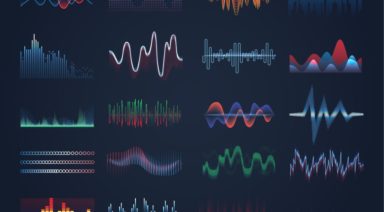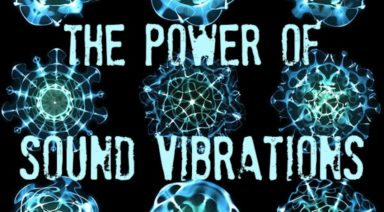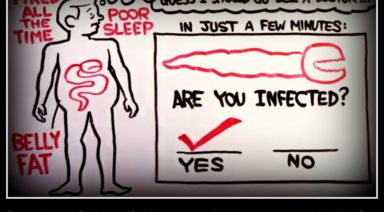Intermittent Fasting: Benefits, Trends, Spirituality and Dangers

I began intermittent fasting when I was 15. At that time, I fasted because it cleared my mind and put me in a more meditative and prayerful state. Fasting might make you feel a little foggy or spacey, but for me, fasting helps me become more peaceful. Meanwhile, it does a great job at rebooting the system.
“All the vitality and all the energy I have, come to me because my body is purified by fasting.”
~ Mohandas Gandhi
What Is Intermittent Fasting?
Intermittent fasting refers to eating plans and dietary protocols that cycle between periods of fasting (no food or some food) and periods of non-fasting. There are a variety of intermittent fasting diets, along with several types of intermittent diet meal plans.
The benefits of intermittent fasting include lowering insulin levels, reducing inflammation, improving brain health, and helping you feel more hopeful and prayerful. Intermittent fasting is showing promising results.
There is also the benefit of weight loss, one of the more popular reasons why people do intermittent fasts. While some intermittent fasts are helping a wide variety of healthy humans (and many mischiefs of lab rats) to burn fat and lose weight, intermittent fasts can have adverse effects, too. To be safe, ask your doctor or certified nutritionist for the go-ahead.
The overall consensus about intermittent fasting is that it improves health and mental clarity, but it doesn’t consistently result in weight loss, or more weight loss compared to diets that restrict calorie and carb intake.
I’ve tried all types of intermittent fasting. Sometimes I lose weight and feel better, and sometimes I don’t experience anything beyond improved clarity and peacefulness.
Intermittent Fasting Diet
In general, intermittent fasting includes fasting one to two days per week, where during those days you eat either no food at all or 25% of your caloric intake.
Most people who commit to intermittent fasts reduce caloric intake to 25% of their regular diets, either periodically or on alternating days. On reduced calorie days, men consume 500 to 600 calories, while women’s caloric intake is 400 to 500.
On non-fasting days, the most successful intermittent fasters eat normally and never binge. Some of the more courageous fasters eat only during limited windows throughout each day and might reduce their carbs. For all fasts, it’s important to stay hydrated, which includes drinking water and non-caloric, non-alcoholic beverages like unsweetened coffee and tea.
You can learn more about a wide variety of intermittent fasts, along with their meal plans and suggested eating schedules here.
Metabolic expert Dr. Deborah Wexler, Director of the Massachusetts General Hospital Diabetes Center said, “There is evidence to suggest that the circadian rhythm fasting approach, where meals are restricted to an 8-10 hour period of the daytime, is effective.”
There is substantial scientific evidence suggesting that circadian rhythm fasting, when combined with a healthy diet and lifestyle, can be a particularly useful approach to weight loss, especially for people at risk for heart disease and type 2 diabetes.
Fast with No Binge
While the idea of fasting for a day and then binging on fat and sugar might sound appetizing, it’s terrible for the body. It’s important to note that when you choose to do an intermittent fast, make sure you are eating normally on the non-fasting days. Studies show that people who binge after fasting can cause their health more harm than good.
If thou wouldst preserve a sound body, use fasting and walking; if a healthful soul, fasting and praying; walking exercises the body, praying exercises the soul, fasting cleanses both.
~ Francis Quarles
Spiritual Fasting
When the body is cleansed, the spirit is uplifted. The two go hand-in-hand. Fasting allows our souls to be less attached to our bodies and minds. It improves our vibration and helps us feel more connected to ourselves and others.
Almost every spiritual and religious tradition in the world mentions fasting as an essential activity for spiritual growth. It’s found 87 times in the Bible. Socrates and Plato fasted so they could purify their minds and spirits in pursuit of the truth.
Native Americans fast either in private or during public rituals. Indian fasts generally include abstinence from food and water, and they often enhance spiritual visions. In addition to a clearer state of mind and heart, fasts are also a way to rid the body and spirit of toxins accrued when interacting with society and the everyday world.
Kundalini Yogis encourage regular fasting because it allows the spirit to traverse the chakras and connect with the eternal consciousness. This allows energy to flow through the body without hindrance. When done in conjunction with Kundalini yoga, intermittent fasting can also improve the immune system.

When doing vision quests in the wilderness and other rituals, I’ve found it vital to fast the majority of the time. The idea here is to put my spirit in a state of wakefulness so that I can connect with my spirit guides and be more in tune with my surroundings.
During my first vision quest, I was so in tune and connected, I was able to attract peaceful bears, mountain lions, wild turkeys, and other animals to my sleeping/ritual sites. I felt genuinely peaceful, which inspired the animals to feel the same.
One early morning, I must have been profoundly awake and aware because a big black bear encouraged me to wrestle with him. He was so loving and playful. I attribute these amazing experiences partly to fasting.
Feeling bright and awake allows our spirits to connect to several dimensions and to vibrate at higher frequencies. This, in turn, improves our health and relationships.
Intermittent Fasting Benefits
If you’d like to lower your risk for disease, intermittent fasting can improve the health of your brain, lower risk of neurodegenerative diseases such as Alzheimer’s and Parkinson’s, and it can reduce the chance of obesity. Some studies show that intermittent fasting can reduce your risk of Type 2 Diabetes, while other studies show that your metabolic health can be put at risk, increasing the risk of diabetes.
Alternative medical doctors, who are trained in both Eastern and Western medicine might be able to understand your specific needs so they can prescribe the type of fast to give you the benefits you’re seeking, while also preventing you from hurting yourself.
While intermittent fasting is not a cure-all, and the data is based mainly on scientific trials focused on mice, many agree that intermittent fasting does wonders.
Many say it can:
- Ease depression
- Improve memory
- Increase vitality
- Reduce inflammation
- Reduce your weight or slow weight gain
- Reduce the growth speed of cancer
- Protect your neurons
- Remove damaged brain cells and generate new ones
- Help reduce attachment to emotional and psychological luggage.
- Improve your experience when praying and meditating
In general, even a little fasting here and there is shown to have positive effects. If you have gut issues or adrenal fatigue, proceed with caution.
Intermittent Fasting Science
One of the most remarkable benefits of intermittent fasting is that it has a positive effect on your mitochondrial networks, the fuel for your cells, by helping it remain fused. This undoubtedly improves energy, which can have positive effects on memory, longevity, and health challenges related to aging.
While intermittent fasting is trending, and many people are posting positive effects from their fasts, the research has mostly been conducted on mice.
The hope is that intermittent fasting isn’t just a fad and that it has proven, lasting effects. Fasting research is on the rise. The hope is that more and more trials involving humans will be funded.
The Dangers of Intermittent Fasting
Studies have shown that intermittent fasting if done incorrectly, can cause a person to have a net gain in weight. When you fast for a couple of days, and then binge on beer and pasta, chances are, you’ll do more harm than good.
Intermittent fasting may increase insulin levels, put pancreatic cells at risk, cause unnecessary fatigue, and add to your belly fat. A new study suggests that intermittent fasting, while often producing positive results, can harm metabolic health and cause Metabolic Syndrome.
When we have poor metabolic health or Metabolic Syndrome, we are at risk for heart disease, diabetes, and stroke. See your doctor to ensure that you have the proper levels of blood sugar, triglycerides, high-density lipoprotein, and blood pressure.
When you conclude your fast, your body might be oversensitive to the foods you eat. Be aware of your allergies and eat only whole, natural, unprocessed foods, at least for several days. Hydration is the key.
In all fasting, be careful about “starvation mode,” when your body starts to conserve energy by reducing the number of calories it burns. Starvation mode is something to avoid. It can cause your body to stop losing weight, and it will most often make you feel depressed, angry, lost, confused or worse. It might also have other negative effects.
Just in case, notify a few friends before you fast. Texting a friend is quick and easy, “Hey, I’m fasting. If I die, you can have my toaster!”
Scientists Find Breakthrough Use of Light to Kill Cancer Cells

In a world-first, scientists have developed a breakthrough treatment that uses light to kill cancer cells.
We often think of light as a life-giving source, but in the case of photoimmunotherapy — the use of light to help a person’s own immune system fight cancer — light can both be a source of life, for the patient, and death, to cancer cells.
A multidisciplinary team of European scientists joined forces to design the new treatment, which works by combining a special fluorescent dye with a cancer-targeting compound.
Shining light on the compound forces cancer cells to glow in the dark, helping surgeons to remove more of the tumors compared with existing techniques.
Then, the surgeon would shine near-infrared light on the site, switching the compound into tumor-killing mode and killing off any remaining cells.





































